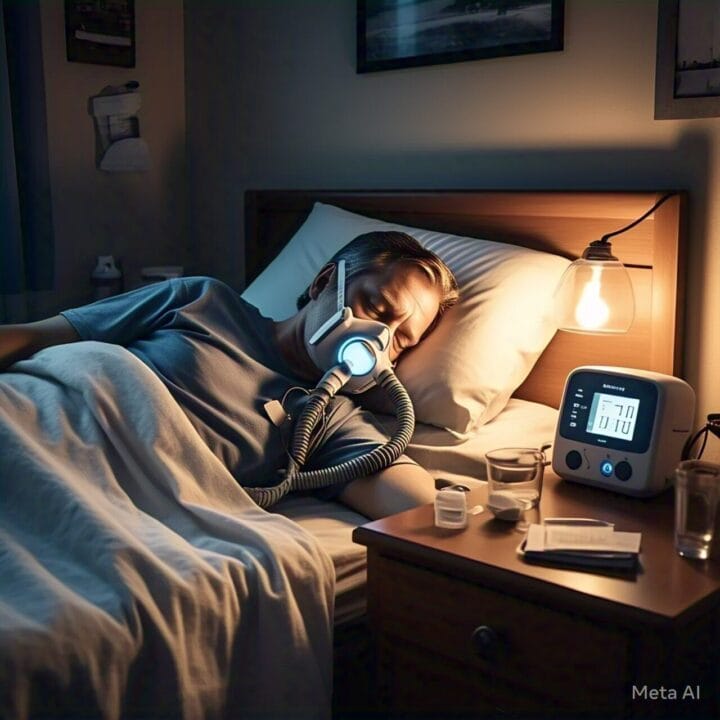Understanding the Pittsburgh Sleep Quality Index: How It Measures and Improves Sleep Health
Table of Contents

Understanding the Pittsburgh Sleep Quality Index: How It Measures and Improves Sleep Health
Introduction
Do you feel tired, groggy, or irritable despite getting what seems like enough sleep? If so, you may be wondering how to assess the true quality of your rest. The Pittsburgh Sleep Quality Index (PSQI) is a widely recognized tool used to evaluate sleep patterns and identify issues that could be affecting your overall health.
Developed to provide a standardized method for measuring sleep quality, the PSQI is frequently used in clinical settings, research, and by individuals seeking to better understand their sleep health. If you’ve ever struggled with insomnia, sleep apnea, or restless nights, understanding this index can be your first step toward better sleep.
In this blog, we’ll explain how the PSQI works, how to interpret your score, and practical tips to improve your sleep based on the assessment.
What Is the Pittsburgh Sleep Quality Index (PSQI)?
The Pittsburgh Sleep Quality Index is a self-rated questionnaire designed to measure the quality and patterns of sleep over a one-month period. It assesses a variety of sleep components to help identify potential sleep disorders or disruptions.
Key Areas Assessed by the PSQI:
- Sleep duration
- Sleep latency (how long it takes to fall asleep)
- Sleep efficiency (the ratio of time spent in bed vs. asleep)
- Nighttime disturbances
- Daytime dysfunction due to poor sleep
- Use of sleep medication
- Overall subjective sleep quality
Each component is scored on a scale from 0 to 3, with a total score ranging from 0 to 21. A higher score indicates poorer sleep quality, with scores above 5 suggesting significant sleep disturbances.
Why Is the PSQI Important for Measuring Sleep Health?
Quality sleep is crucial for physical and mental well-being. When your sleep is disrupted, it can lead to a range of health issues, including:
- Fatigue and daytime drowsiness
- Impaired cognitive function and memory
- Increased risk of cardiovascular diseases
- Mood disturbances, including anxiety and depression
- Poor immune function
The PSQI provides a comprehensive evaluation by looking beyond just sleep duration, ensuring that other factors—like how restful your sleep is and whether you wake up feeling refreshed—are considered.
How to Interpret Your PSQI Score
After completing the questionnaire, you’ll receive a score between 0 and 21. Here’s a breakdown of what your score means:
- 0-5: Good sleep quality (minimal or no issues)
- 6-10: Mild sleep disturbances (may indicate issues like occasional insomnia)
- 11-15: Moderate sleep issues (potential signs of chronic insomnia or other sleep disorders)
- 16-21: Severe sleep problems (requires immediate attention and possible medical intervention)
If your score is above 5, it may be time to address the root cause of your sleep disruptions.
Common Causes of Poor Sleep Based on PSQI Components
1. Sleep Latency: Trouble Falling Asleep
Many people take longer than 30 minutes to fall asleep due to anxiety, screen time, or poor bedtime routines. If this is a recurring issue in your PSQI assessment, consider:
- Reducing blue light exposure before bed
- Practicing relaxation techniques like meditation or deep breathing
- Setting a consistent bedtime routine
2. Nighttime Awakenings: Frequent Sleep Interruptions
Nighttime disturbances can be caused by external factors like noise, temperature, or an uncomfortable mattress. Internal causes may include sleep apnea or restless leg syndrome.
Solutions:
- Ensure your sleep environment is quiet and dark
- Maintain a comfortable room temperature (60-67°F is ideal)
- Consult a doctor if conditions like sleep apnea are suspected
3. Daytime Dysfunction: Fatigue and Lack of Focus
If your PSQI score indicates that poor sleep is affecting your daily activities, it’s crucial to identify and fix the underlying causes. Chronic fatigue can lead to decreased productivity and increased risk of accidents.
Tips:
- Take short, restorative naps if needed
- Prioritize physical activity during the day to improve nighttime rest
- Limit caffeine intake, especially in the afternoon
How to Improve Your Sleep Quality Based on Your PSQI Score
1. Create a Sleep-Friendly Environment
- Use blackout curtains to block light
- Invest in a supportive mattress and comfortable bedding
- Minimize noise with earplugs or a white noise machine
2. Follow a Consistent Sleep Schedule
Going to bed and waking up at the same time each day helps regulate your body’s internal clock, improving sleep quality.
3. Limit Stimulants Before Bed
Caffeine, nicotine, and even heavy meals can interfere with your ability to fall and stay asleep. Avoid these substances at least 4-6 hours before bedtime.
4. Practice Relaxation Techniques
Stress is a major cause of poor sleep. Techniques like yoga, progressive muscle relaxation, and mindfulness meditation can help calm the mind and body.
5. Seek Medical Help if Needed
If you score consistently high on the PSQI or experience severe sleep problems, consult a sleep specialist. Conditions like sleep apnea, insomnia, or restless leg syndrome may require medical treatment.
Benefits of Tracking Your Sleep Progress with the PSQI
The PSQI is not just a one-time assessment—it can be used over time to monitor improvements in sleep quality after implementing lifestyle changes or treatments. Keeping track of your score can help you identify what strategies work best for you.
Why Tracking Matters:
- Helps determine whether lifestyle adjustments are effective
- Enables early detection of potential sleep disorders
- Provides valuable information for healthcare providers
Conclusion
The Pittsburgh Sleep Quality Index is a powerful tool for evaluating and improving sleep health. By identifying specific areas of disruption and addressing them with targeted strategies, you can enhance your sleep quality and overall well-being. Whether you’re dealing with occasional sleepless nights or chronic sleep issues, the PSQI can guide you on the path to restful, restorative sleep.
Don’t underestimate the importance of good sleep—use the PSQI to uncover hidden sleep issues and take control of your health.
FAQ
1. How long does it take to complete the PSQI questionnaire?
The questionnaire typically takes 5-10 minutes to complete.
2. Can I take the PSQI test at home?
Yes, the PSQI is a self-administered test and can be taken at home.
3. What is considered a “bad” PSQI score?
A score above 5 is considered poor sleep quality and may indicate a need for intervention.
4. Is the PSQI reliable for diagnosing sleep disorders?
The PSQI is a screening tool, not a diagnostic one. For a formal diagnosis, consult a sleep specialist.
5. Can lifestyle changes improve my PSQI score?
Yes, changes like improving sleep hygiene, managing stress, and reducing stimulants can help improve your score.













Post Comment